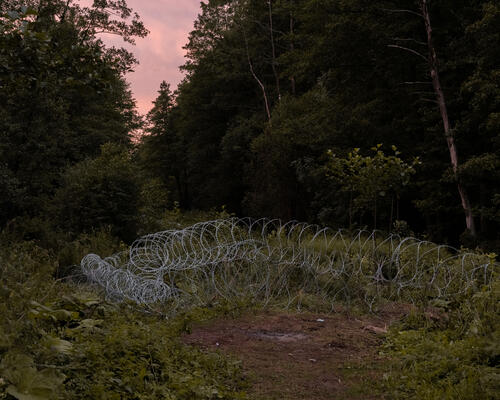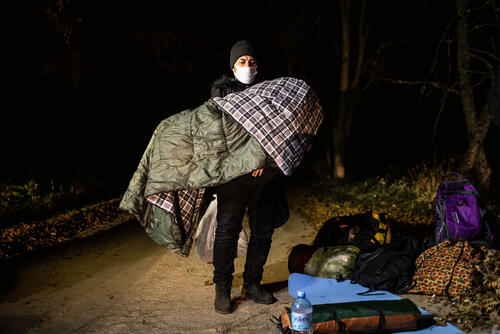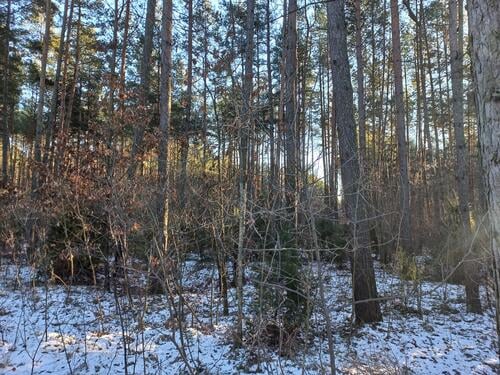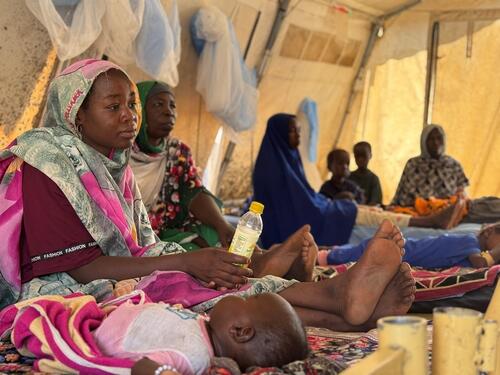People on the move continue to be stuck in a forested border region in need of medical assistance, where they face freezing temperatures. In early 2022, Médecins Sans Frontières (MSF) took the difficult decision to withdraw from the Polish border area after being blocked for months by the authorities to enter the restricted zone.
At least 21 people lost their lives in an attempt to cross the border from Belarus to Poland in 2021. Today, people continue to face freezing temperatures without food, water, shelter, warm clothes or access to healthcare. While EU policies and restricted access for organisations to offer support to migrants continues, more people are at risk of dying in these harsh conditions.
Below we share the concerns of those who are left to help the most vulnerable people hiding in the forest under extreme conditions. These are the voices of some people we spoke to.
How has your life changed since the situation on the border began?
“The biggest change was when people started coming to our neighbourhood. At first we just heard about people crossing the border and saw photos, because people couldn’t pass through our area as there are swamps everywhere. But I’m afraid there are some bodies in these swamps,” says Zosia*, a resident of a village in the border region.
“Then the state of emergency was established. I live outside of the state of emergency zone, but close to the area and so I have crossed the zone many times. But for my friends who live inside the zone I think it is much harder, because they meet armed soldiers all the time. The children are often scared,” says Zosia*.
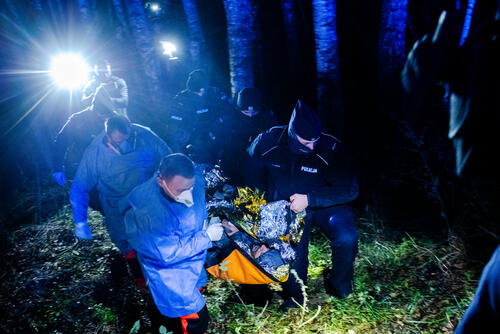
“Our life has changed in many ways: restless nights, nervous tension, fear that helping refugees will be seen as involvement in human trafficking and smuggling. Fear that right-wing circles might take revenge on the people helping,” says Marek*, a resident of a village in the restricted zone.
“Freedom of movement has been restricted, and normal tourist activity is impossible. Despite everything, we have grown closer to our immediate family. We talk about it a lot, I have a lot of anger about it, I burden myself with my thoughts, but I have support from my wife and our eldest son comes home more often,” says Marek.
Have you encountered problems while helping people on the move?
“I was helping one group of people who were in very poor condition and we called an ambulance. We knew that the ambulance would come with the border guards, but it was impossible for us to leave these people alone [without medical care], knowing the attitude of the border guards towards migrants,” says Zosia.
“A group came, they were border guards, but they didn’t have insignia or the signs were hidden and they started to threaten us. They said that we were there illegally, that we were smugglers. They were also very hostile towards the refugees. We felt like we were in a trap. We were afraid – not for ourselves, but for these people; that they would be pushed to the forest again.”
That local volunteers are vilified and intimidated to stop them from providing support is utterly unacceptable.Frauke Ossig, MSF emergency coordinator for Poland and Lithuania.
You have distributed vital items to people on the move. Do people in your community support this?
“People in my village know what we are doing through word of mouth. We don’t talk about it and I can imagine what they think about it. But on the other hand, we have had amazing support from our friends, many of whom came here to help us,” says Zosia.
“Many came to the forest with us, delivering things to people who are stuck there. This is very important for me, when I go to the forest, I feel that I’m not alone,” she says.
“The community is once again divided into those who are happy with the services that defend the border and those who cannot remain indifferent,” says Sylwia*, a resident of a village in the restricted zone. “The military would like no one to talk about anything and everyone to sit quietly and pretend not to see anything.”
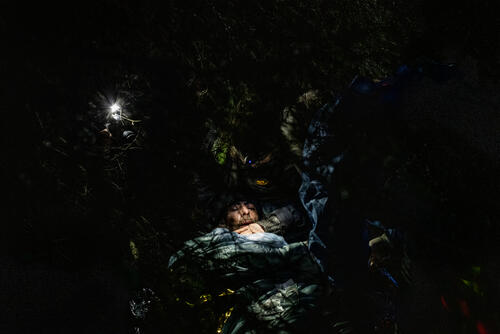
Do people in the villages within the restricted zone get psychological support to cope with this situation?
“I know of several people who have been traumatised by seeing families hiding in the bushes, seeing them captured by border guards and later finding out that they had been taken behind the wire fences again,” says Marek.
“People who work in cooperation with Grupa Granica (Border Group) have access to free psychological assistance. The Border Group helps the volunteers of the area. Without them the situation would be very difficult,” he says.
What do you think needs to be done?
“The most important thing is that the government stops the pushbacks. And we need the government to change the law and to wake up,” says Zosia.
“We need a decision by the government and the border guards that will allow assistance (medical and legal) to be given to those in need, in accordance with civilised standards and with respect for human rights. We also want an end to restrictions of movement for the local residents, and an end to the extreme militarisation of the border zone,” says Marek.
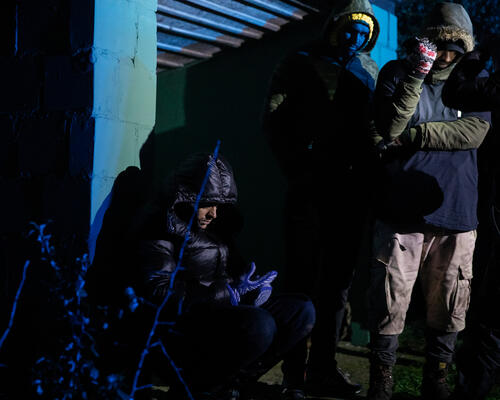
“We don’t want people to die in the forest. We don’t want them to die behind our fence. We want to help people in need no matter where they are from. We have been brought up with certain values and we have to live according to these values – and to help those in need,” says Marek.
“We need a humanitarian corridor, we need support to inform people at home and around the world about what is really happening,” says Sylwia. “Those in power and those giving orders must see the migrants as people and give them dignity and respect – as people in need.”
*Names changed to protect identity.



